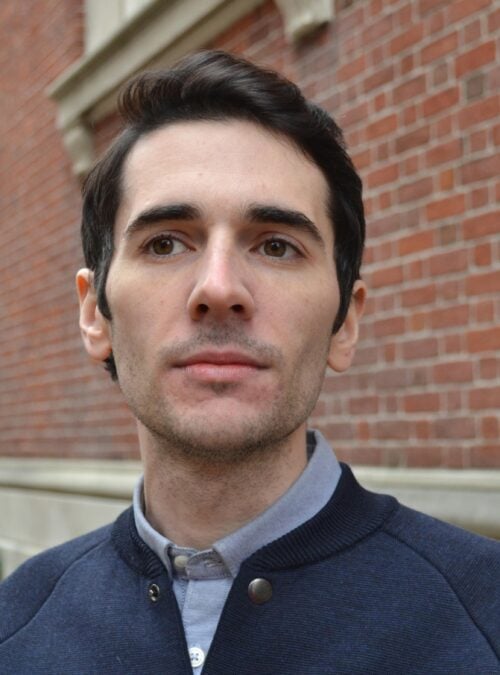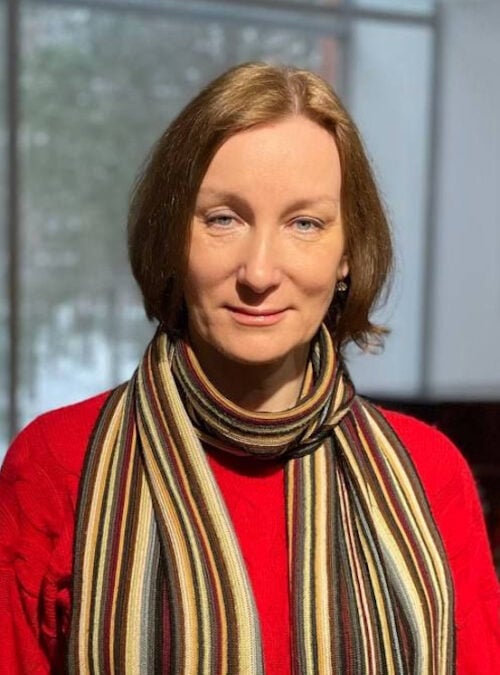Interview with Jean-Pierre Pisetta, writer, and translator
Author: Luigi Visconti

Jean-Pierre Pisetta was born in 1956 in Belgium to parents who had emigrated from Trentino, in northern Italy. After his secondary education, he worked for four years as an unskilled worker. Afterwards, he studied translation in the Russian-Italian-French department. He first started working as a teacher in 1984, a profession he pursued until his retirement in 2021. His first translation from Russian was published in 1986 (Leo Tolstoy, Contes et Récits); his first translation from Italian was published in 1990 (Gianni Vattimo, La société transparente); his first collection of personal short stories was published in 1997 (Morts subites).
How did you get into this profession? What were the most important stages in your professional career?
While working as an unskilled labourer (1976-1980), I became extremely interested in literature and, in particular, in Russian-Soviet literature. I still remember the feeling of reading Solzhenitsyn’s Premier Cercle, a many-voiced novel in which all the characters, right down to the prison sweeper, have their own story. It is this gift, this offering – to allow those who don’t speak a language to discover and appreciate the literature of that language – that made me want to work as a translator.
The most crucial step in my career as a translator was in 1993. After several financial disputes with the same publisher over two consecutive contracts, I sent him the forty translated pages of the second book I was translating for him at the same time as I finally gave up translating on commission. Since then, everything I have published has been the result of a personal choice of what to translate, which I submit to publishers once the translation is complete. This ‘independence’ has, however, had one unfortunate consequence: a large number of my maverick translations have languished in my drawers.
What is your opinion concerning the fidelity of a translation? In other words, to use Jean-René Ladmiral’s famous definition, do you feel more of a “sourcier”, that is more bound by the source text, or more of a “cibliste”, paying greater attention to the target language and culture?
I have developed a different concept from Ladmiral’s: “literary literality”.
I attach primary importance to the words used by a writer, and secondary importance to the order of these words. Simply put, I always begin, sometimes only in my head, sometimes going straight to writing, with a phase of literality, or in other words, the greatest respect for the letter of the original. Immediately afterwards, or a long time later, i.e., when I go back and re-read the translation, I move on to the operation of “literarisation”, which is as essential and inevitable as the operation of “literalisation”. This is why my approach to the text to be translated is always twofold, first literal, and then literary. We should note that literal doesn’t mean word-for-word: “Piove”, in a “word-for-word” translation, is “it Rains”; but it’s “it Rains” also in a literal a literary sense.
To use the words you suggest but, as far as I am concerned, I never use because I find them too “exclusive”, I am always both a “sourcier” and a “cibliste”, and always a “sourcier” before being a “cibliste”.
How important is the personal relationship with the authors you translate in your work as a translator? Do you keep in touch during the translation process?
If the author is still alive, I always contact him or her as soon as I start translating. For example, I kept in touch with Paolo Barbaro, whose Storie dei Ronchi I translated, with Laura Mancinelli for her Amadé, with Erri De Luca at the beginning of his career, in 1995, for the translation of one of his short stories, La città non rispose, which had appeared in a collective collection and which he later included in a personal collection, In alto a sinistra. Yes, I think it’s especially important. But I have also translated many deceased authors, recently Libero Bigiaretti, Edmondo De Amicis, Francesco Jovine… and I have always missed this contact.
You are working on a new translation of Dante’s Divine Comedy. Could you tell us more about this project?
While the word “Dantean”, which commonly means “infernal”, is widely used in French, who reads the Comedy today in French-speaking countries? And, above all, how many young readers, or even keen readers, have even read the Inferno? Yet this text, full of ‘fantastical’ – and fantastic – episodes deserves to be better known. Alas, versified translations are boring and inaccessible to the common reader, even keen readers.
Therefore, I thought, in order to bring Dante closer to a large French-speaking readership, to translate him into prose, as faithfully as possible, but without notes, adding chapter titles or rather songs that would clarify the excessively nebulous passages of the text.
In a lecture given in 1966 entitled ‘For the centenary of Dante’ (the 600th anniversary of his birth), the Greek poet Georges Seferis noted Dante’s extreme lexical precision and regretted that versified translations sacrificed it for the sake of metre. He therefore called for a prose translation that would respect this precision and bring the foreign reader as close as possible to the letter of the text.
I read Seferis’s text long after I had embarked on this enterprise, but his point of view of course comforted me. At the beginning of my translation, I added a quotation from Joseph Bédier’s foreword to his prose translation of La chanson de Roland: “This book is not only for scholars; anyone who can read and write should be able to read the venerable poem and enjoy it.” I couldn’t have said it better myself.
But I have been offering “my” Inferno to publishers for ten years, without success. I continued my prose translation well into Purgatory but finally, given the lack of interest in my approach, I admitted defeat at Canto XVII.
What is the most satisfying or the most difficult part of your work?
The exercise of writing, of style, but with the constraint of respecting the original, is an extremely educational and enriching endeavour, also for my activity as a writer.
But, since I tend to be unconventional in my work, translating texts which I then offer to publishers, the most difficult thing is to knock on doors that don’t often open. I must also add that my choices are not “commercial” and are perhaps too specifically “personal”.
What books are you currently working on? Which author would you like to translate one day?
I have just finished translating Corrado Alvaro‘s Revolt in Aspromonte, which is the title of a long story (half the book), followed by twelve other short stories, which I’ve sent to various publishers.
In 2021 I published La malattia by Libero Bigiaretti, a writer whose books are no longer available in Italian bookshops, and I have my eye on his magnificent novel I figli.
Having published, with two of my former students, two short stories by Antonio Baldini (yet another writer whose works have disappeared from bookshops in Italy), I would gladly translate a light-hearted short story of his, entitled Michelaccio.
From Francesco Jovine, whose translation of Viaggio nel Molise I published a few months ago, I would like to translate his remarkable Ladro di galline, in particular the eponymous short story of this collection.
One day I hope to finish translating Giovanni Mosca‘s Last Day at School, a collection of memories of the author’s days as a teacher in the 1930s. I’m halfway through it.
But my drawers are so full of rejected manuscripts that I won’t be able to squeeze in even one little poem. So, I’m going to devote myself for a while to studying the piano and oil painting, two activities I’ve been doing for a long time, and which are “self-sufficient”.










